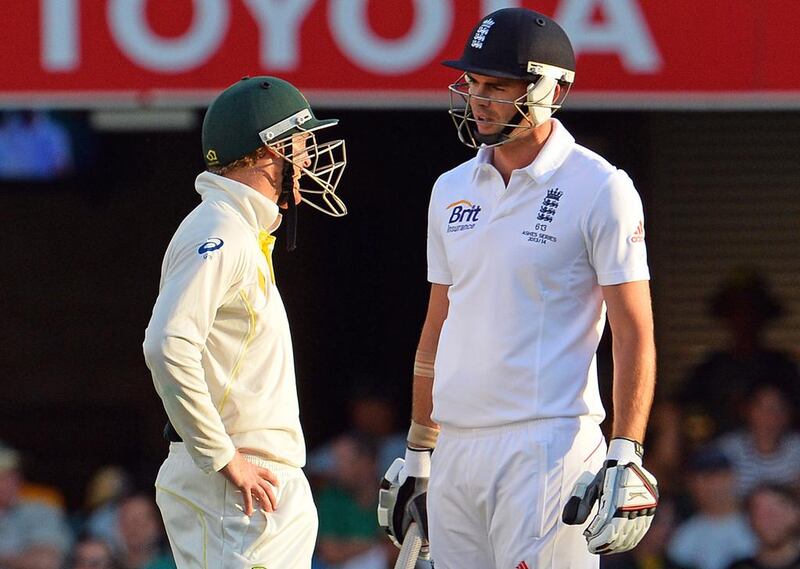The greatest sledges, it turns out, are a myth. That was the outcome of an entertaining little investigation by the writer Matt Cleary who decided to dig his way to the source of some of cricket’s most loved insults to see whether they were actually true.
Of the nine Cleary picked, five (and a half: sledges are distorted/exaggerated easily over time so truth and false are relative scales) turned out to be false.
The famous Steve Waugh-Herschelle Gibbs line, about the latter dropping the World Cup in 1999? Not true.
‘G’day Ian, how’s your wife and my kids?’, we were told was how Rod Marsh once welcomed Ian Botham. He never did.
One of the best, the Mars bar riff between Ian Healy and Shane Warne to Arjuna Ranatunga (place Mars bar on good length spot, tempt overweight batsman to come out to drive – or fetch Mars), was only half-true; Ranatunga was not the victim, but a little-known South African.
The other thing about that list was that eight of the incidents involved Australian players. As proportional representation of all sledging ever that sounds right, probably even a little lower than imagined.
Every cricket team sledges, but the Australians are so quick-witted and sharp, their lines seem to have been written by whoever is writing American TV these days. Which brings us to Michael Clarke’s words to Jimmy Anderson at the death of the first Ashes Test in Brisbane.
Telling Anderson to get ready for a broken arm does not really constitute an outright sledge, though Malcolm Marshall’s charming query to David Boon on his debut (“Now David, are you going to get out or am I going to have to bowl around the wicket and kill you?”) is remembered as one.
Clarke’s was a warning sure. But a sledge? Only in so much as it was broadcast accidentally to the world.
Part of the charm of sledges is that they mostly go unheard by anyone but the players involved and, with stump mics usually turned down, broadcasters.
But Clarke’s threat intrinsically felt like a moment of significance and not just bullying words thrust at a tail-end fast bowler.
Clarke has never been the fluffy pretty boy he was feared by many in Australia to be at first.
But increasingly as the side has struggled under his captaincy, on and off the field, a more haggard, broodier leader has emerged, a man who may just have had enough of leading a struggling side. It was actually refreshing to hear him say it, because it looked, for all the world, as if he meant it. And if him meaning it means that Australia might be rediscovering a little of what has always helped their greatest sides, then that cannot be a bad thing.
The moment had echoes from another Ashes Test, nearly a quarter of a century ago.
Allan Border was the captain when Robin Smith asked for a glass of water during an innings in the summer of 1989.
Border’s reply – reproduced in politer tones here – was another question: ‘What do you think this is? A tea party?’
The exchange crystallised the newly-acquired hardness of Border’s Australians, a very deliberate ploy decided upon pre-series.
They were nasty throughout the summer, much to the England captain David Gower’s shock.
They were also very successful and the series was one of the early seminal moments in Australia’s rise after a wasted decade.
It is far too early in the life of this series and the evolution of this Australian side to suppose that things may turn out the same in the short and long terms.
But Clarke’s advice to Anderson and Australia’s general attitude before, during and after the Test, has jarred the English. The force with which it has come may not have been expected.
England are a weather-beaten side though, and far more assured than they were in 1989. They will not be rattled so easily. They can crank up the nasty themselves, even if Anderson has still not fully shed the impression that he is more the arty, waifish lead singer of a Manchester indie band than a nasty, snarling fast bowler.
That is to consider nothing of how uncertain a team Australia are at the moment.
Long may the verbals continue in the series though, true, false or exaggerated.
Sledging adds to the public persona of these figures that we develop a kind of intimacy with. We do not know what they are really like, but we see and take what they are on the field.
And there sledging adds, not in the way of necessarily enhancing a character, but in revealing it.
There are many, like Anderson, in whom sledging hints at underlying insecurity.
In the Indian Virat Kohli’s incessant yapping and posturing there lies an irrepressible brat.
But with Clarke that day, the significance of his sledge – as well as the depth of its revelation – we will only know after the series is over.
osamiuddin@thenational.ae
The first day of the second Test begins at 4am on Thursday on OSN Sports 1 HD.





